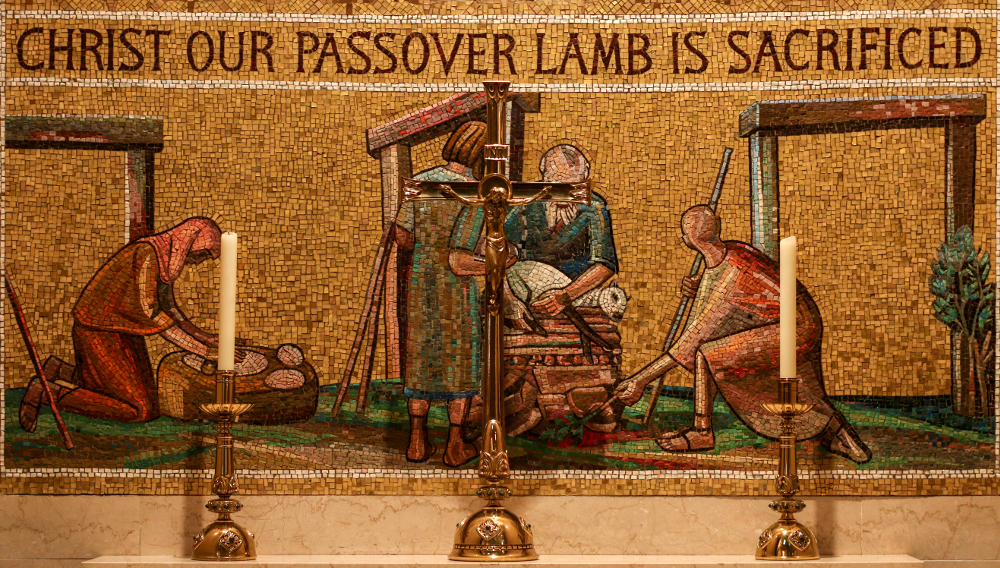Ancient worship must have been something like a combination of slaughterhouse and barbecue. Animals to be sacrificed were brought in, ritually killed, and roasted on altars. Often, parts of these animals were then eaten by the worshipers—Leviticus outlines who gets which parts of various animals, for example.
These altars are the images the Church offers us in Mass today, the feast of Saint Maria Goretti. First, the entrance antiphon proclaims,
Behold, now she follows the Lamb who was crucified for us, powerful in virginity, modesty her offering, a sacrifice on the altar of chastity.
Shortly afterward, we hear the account in Genesis of the sacrifice of Isaac, also on an altar:
As the two walked on together, Isaac spoke to his father Abraham: “Father!” he said. “Yes, son,” he replied. Isaac continued, “Here are the fire and the wood, but where is the sheep for the burnt offering?” “Son,” Abraham answered, “God himself will provide the sheep for the burnt offering.” Then the two continued going forward.
When they came to the place of which God had told him, Abraham built an altar there and arranged the wood on it. Next he tied up his son Isaac, and put him on top of the wood on the altar.
A giant barbecue is perhaps not the first image that comes to mind when we think about living the virtue of chastity, but today’s liturgy suggests that it could be a beautiful one. We’re invited to follow Abraham and build in our souls an altar of virtue. On this altar, we can pile up the wood of our good works and set everything ablaze in the fire of our love. Finally, like Saint Maria Goretti, we can throw our whole selves upon this altar as an offering to God.
Ultimately, though, our sacrifice on its own can never be truly worthy of the Lord. Instead, as Abraham knew well, “God himself will provide … the burnt offering.” Just as Abraham brought the knife to the throat of his son, so we set ourselves on fire with love and wait on the mercy of God. As the Angelic Warfare Confraternity prays,
Dear Jesus, I know that every perfect gift, and especially that of chastity, depends on the power of Your providence.
Only God can provide an offering worthy of the altar of chastity.
If we do offer ourselves, though, He will take us and do with us according to His good will. For some of us, He will accept our whole offering, calling us to persevere in a life of celibate chastity. Such persons give up the great good of children to witness to the reality of the heaven that we all seek. Dedication to that bodily offering may require defending it against attack, as Saint Maria Goretti did.
For probably more of us, the Lord responds as He did to Abraham. God gave Abraham a ram to sacrifice in place of Isaac, not because Abraham’s faith or love was less, but because He had chosen Abraham to bear “descendants as countless as the stars.” The patriarch Abraham witnessed to the way God constantly builds up His kingdom even in this world.
We can still enjoy barbecue under the new law—and with a wider menu, too—even though we no longer worship by means of bloody animal sacrifices. This doesn’t mean that we’ve simply done away with animal sacrifice altogether, however. Instead, the new law fulfills the old law by the sacrifice of the highest animal, us, on the altar of chastity. Living chastity according to our state in life, we join ourselves to “the Lamb who was crucified,” He Who is the highest fulfillment of the animal sacrifices of old.
✠
Image: Fr. Lawrence Lew, O.P., Christ Our Passover Lamb is Sacrificed (used with permission)







